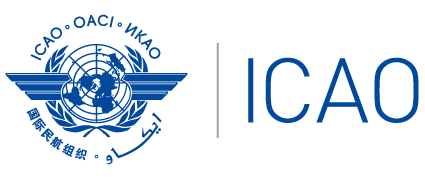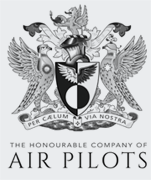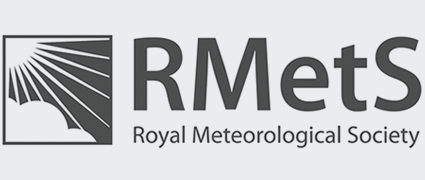DEI learning initiatives and training
DEI learning initiatives and training
Accessible learning resources
It is important to make learning resources on diversity and inclusion easily accessible to all employees. Online platforms, webinars, and e-learning modules can be used to accommodate diverse learning styles and preferences. This is especially important for people who are working shifts and/or are not working in the same location (cabin crew for example).
- DEI learning strategy
A learning strategy with planned activities should be established to create regularity and ensure that a wide audience is addressed within the organisation.
- Reviewing learning programmes
It is important to regularly assess the impact of initiatives and adapt them to the evolving needs of the workforce.
- Learning programmes across various levels of the organisation
All employees must have a baseline knowledge and awareness about DEI and the DEI policy of their organisation. Line managers need to extend this knowledge in order to be able to apply it within their teams and shape the team’s DEI culture. Senior and top managers need to have a strategic view on DEI in order to be able to discuss, inspire and talk about it in public forums, conferences and media.
- Safe spaces to share
Safe spaces need to be created for employees so that they can share their experiences, challenges, and suggestions for improvements for learning programme initiatives.
- Concrete examples of DEI learning and training
Organisations can use off-the-shelf online products targeting either all staff, middle management, or top management. In addition, organisations can reach out to internal or external consultants for face-to-face workshops and talks on-site. In some cases, organisations can make use of specialists to provide advice to teams or individuals.
DEI embedded in leadership programmes
Leadership development programmes that emphasise the importance of inclusive leadership should be offered. Leaders should be provided with tools and strategies to create diverse and inclusive teams and to enable them to acquire inclusive leadership skills and gain an understanding of unconscious bias, diverse personalities, and cultural awareness to ensure staff from diverse backgrounds feel valued and understood.
Legal and ethical considerations
It is important to ensure that leaders and line managers are aware of legal and ethical considerations related to diversity and inclusion, and that guidance on creating environments that comply with anti-discrimination laws is provided.
- Intercultural awareness
- Aviation is a global industry. Developing skills to work effectively with individuals from diverse backgrounds and cultures is a must for anyone working in an international team or who works with people with different nationalities.
- Emotional intelligence
- It is important to ensure that leaders embrace the skills needed to develop equity at work, such as curiosity, courage, vulnerability, listening, and empathy.
- Psychological safety
- Enquire about the levels of psychological safety in the organisation and adapt the learning style to foster an atmosphere of sharing.
Continuous Learning and Adaptation
The importance of continuous learning and adapting in an ever-evolving landscape should be highlighted. Leaders should be encouraged to seek feedback, stay informed about emerging issues, and adjust their leadership approaches accordingly.
Culture workshops
Instead of focusing on outlining the traits of each culture, open dialogue should be encouraged to enhance understanding of different dimensions and appreciation for people’s contributions beyond national preferences, allowing the merits of every perspective to be put forward. It is important to establish an understanding of the origin of these traits from a background that is not solely linked to national culture but people’s general experience and personalities. Increasing curiosity is important to counterbalance bias and stereotypes. Human factors in aviation-specific contexts should also be looked into.
Unconscious bias training
Training sessions should be offered to help employees recognise and mitigate unconscious bias in the workplace. Practical tools for addressing bias in decision-making processes should be made available. Intervention training should also be considered, which involves practical training on how to intervene efficiently and tactfully when people witness bias. Although both of these forms of training deal with unconscious bias, intervention training has shown better results as typical unconscious bias training asks the participants to self-regulate, while intervention training gives people the tools to correct biased behaviour by which all parties improve their ability to work in a diverse environment.
Inclusion and diversity workshops
Real-life scenarios and case studies should be discussed to make training more practical and to allow staff to discuss recurrent behaviours and ethical concerns. Giving enough space and withholding judgement is key so that participants can express diverse opinions. Case studies can be found online (e.g. Harvard Business Review – you can also contact the working group behind this toolkit to exchange information on concrete study cases).
Mentoring programmes
Mentorship programmes should be implemented to connect staff from underrepresented groups with mentors. Mentoring programmes are one of the most successful tools in building an inclusive workspace. While they help mentees to advance in the workplace, they are also a great opportunity for mentors to see the world and its challenges through the eyes of the person they are mentoring and thus learn about various diversity challenges. EUROCONTROL and ICAO have made available a practice-oriented course on how to prepare, implement and manage an effective mentoring programme: Learning Zone – “Prepare and run an effective Mentoring program [GEN-MENT]” (eurocontrol.int).

Intercultural awareness programme
Staff should be given the tools they need to understand the traits of different cultures in key areas such as communication, feedback, decision-making, scheduling, and leading. This will allow them to develop the ability to function effectively across cultures, to think and act appropriately, and to communicate and work with people from different cultural backgrounds.
Training programmes for DEI specialists
Staff working on DEI should also undergo specific training so that they can meet the needs of the organisation and the people who participate in various programmes and know about the latest best practices. The references below should be taken as a starting point. As the DEI landscape is constantly evolving, various programmes have been rolled out. Consider the one that is the most suitable for your needs from a geographical, environmental and contextual point of view.
- IATA – Diversity and Inclusion (e-learning)
- Catalyst – Inclusive Leadership Professional Certificate | edX
- Diversity, Equity, Inclusion & Belonging | Online Training | AIHR | HR Certification
- Advancing Diversity and Inclusion | INSEAD

 Organising a learning and development initiative for diversity and inclusion in an organisation is a crucial step toward fostering an inclusive workplace culture. Unlike technical training where knowledge can be transferred in a quick and transactional way and be tested in an exam, training, awareness-raising and learning initiatives in the area of DEI yield indirect results in the participants’ behavioural changes. The typical learning path of each staff member takes a long time and requires persistent interactions so that awareness becomes automatic behaviour.
Organising a learning and development initiative for diversity and inclusion in an organisation is a crucial step toward fostering an inclusive workplace culture. Unlike technical training where knowledge can be transferred in a quick and transactional way and be tested in an exam, training, awareness-raising and learning initiatives in the area of DEI yield indirect results in the participants’ behavioural changes. The typical learning path of each staff member takes a long time and requires persistent interactions so that awareness becomes automatic behaviour.






